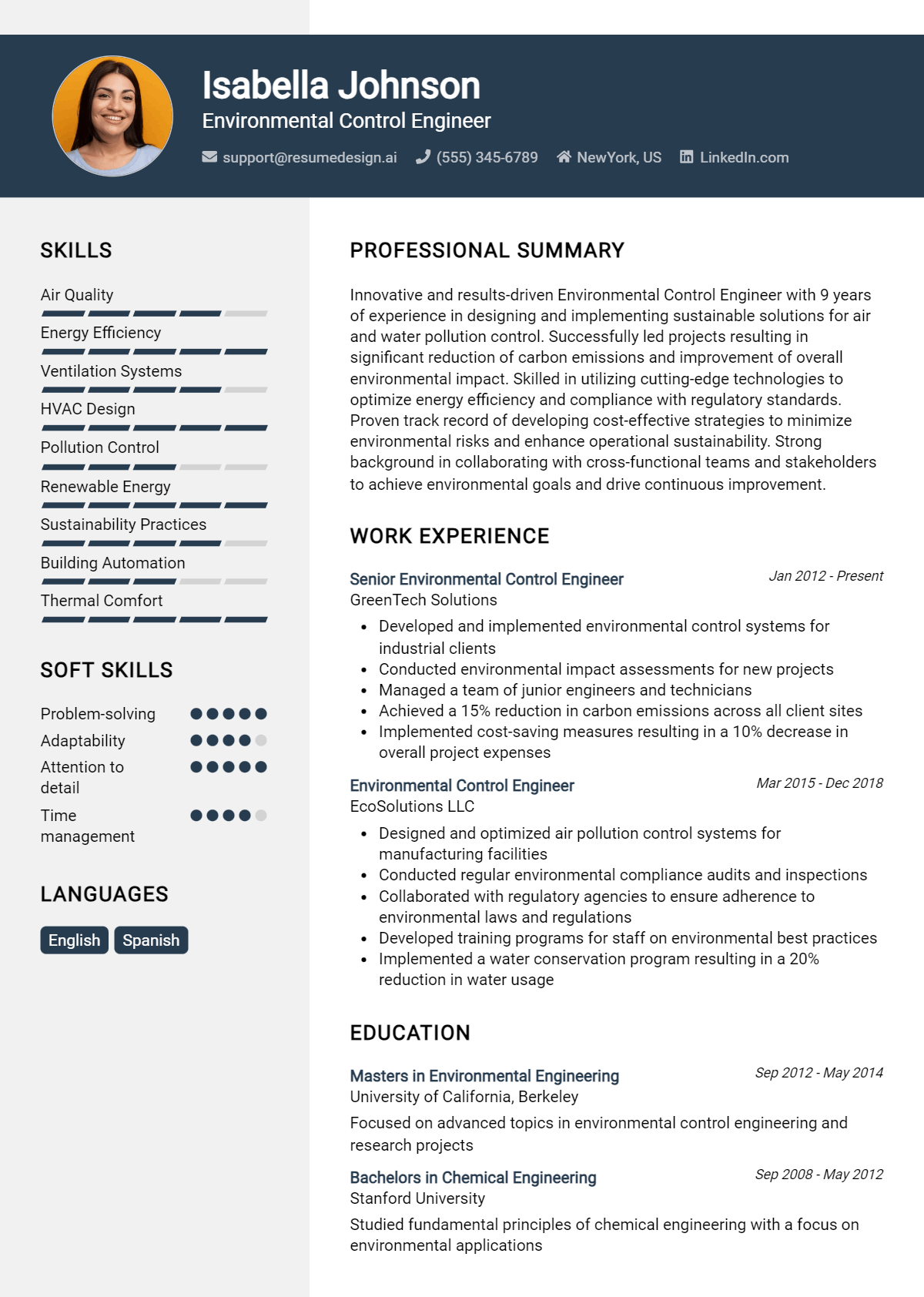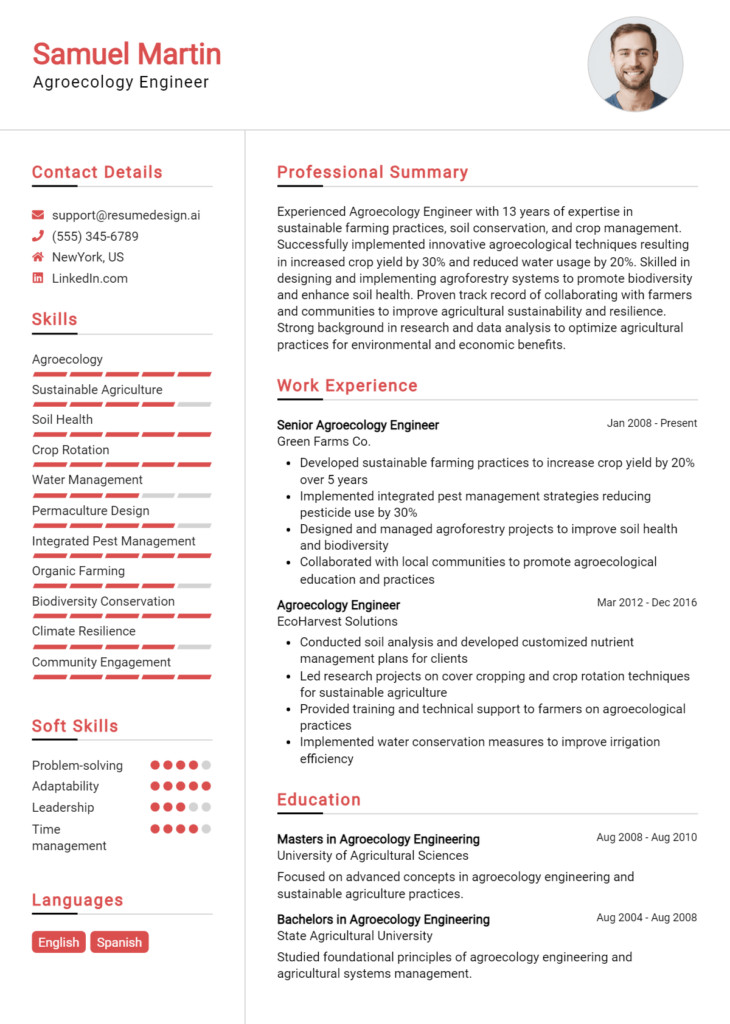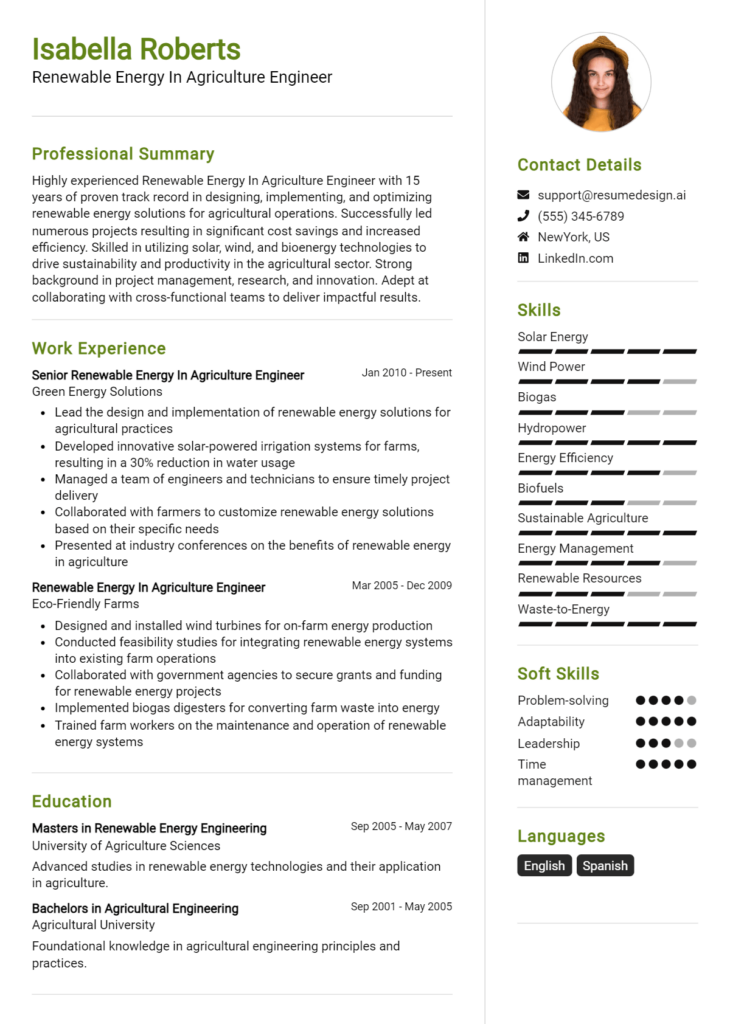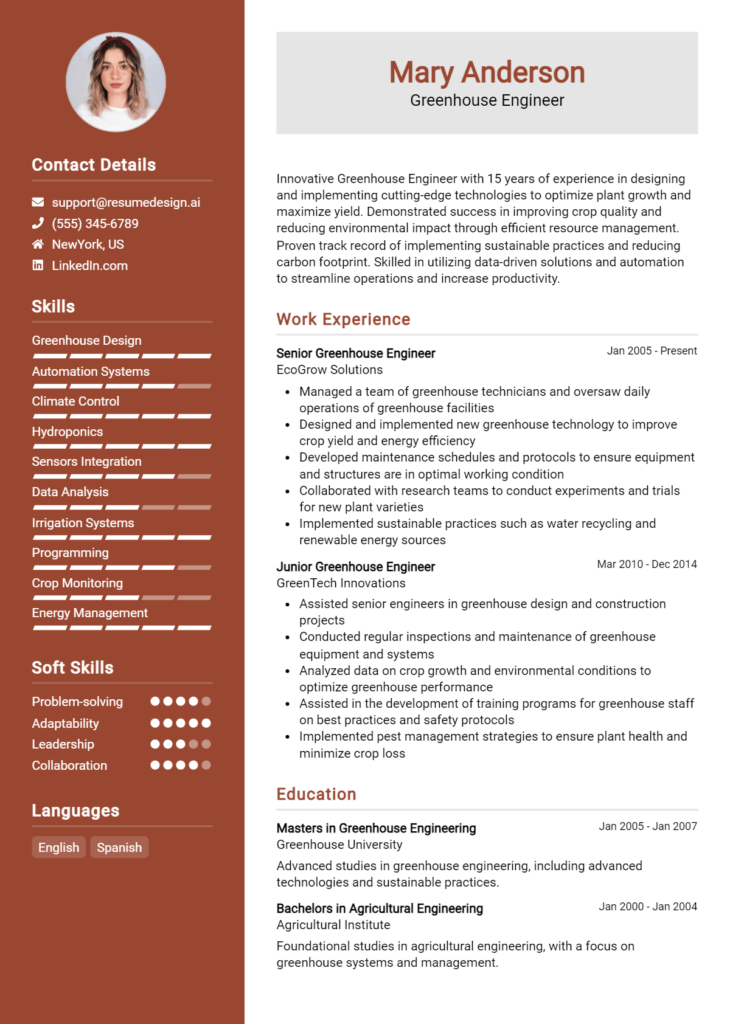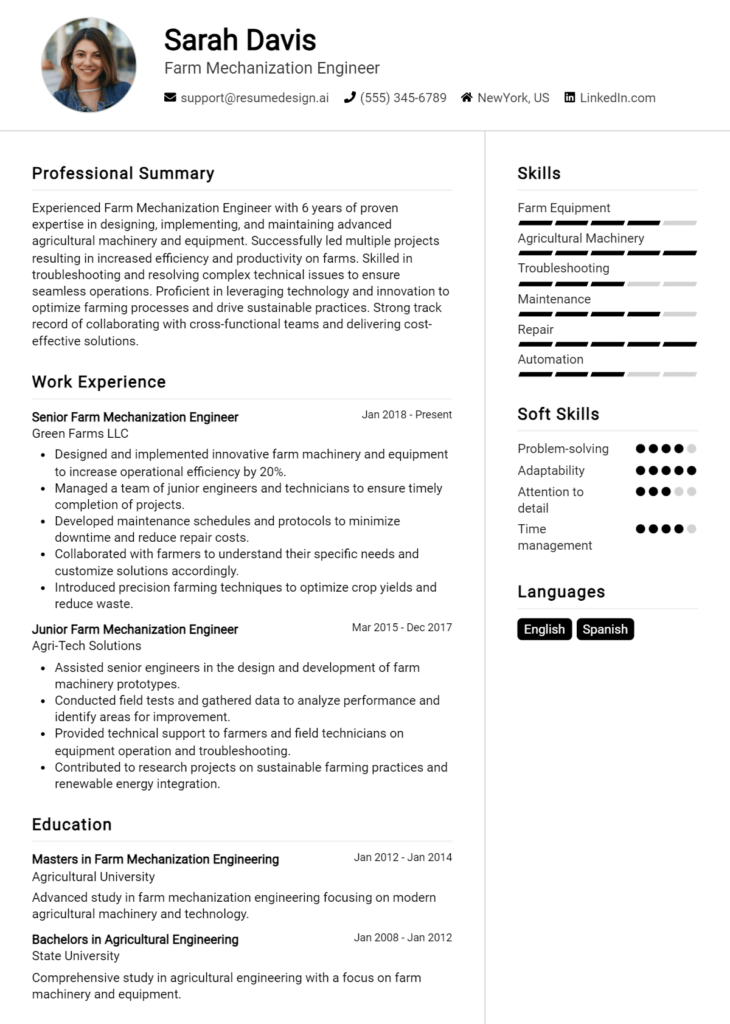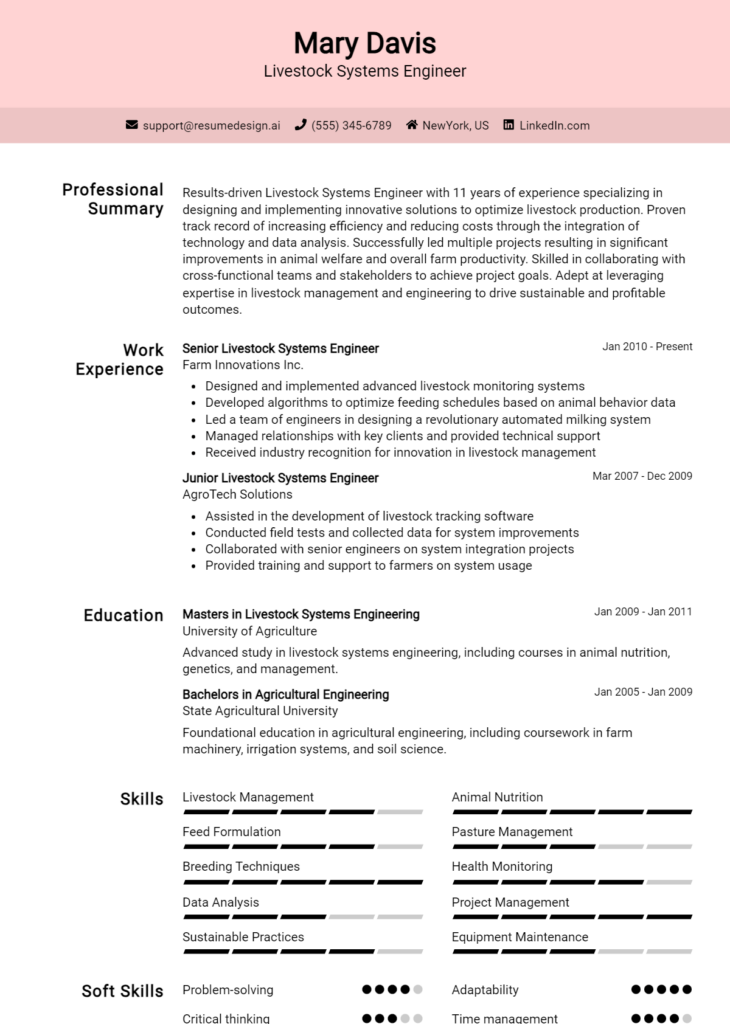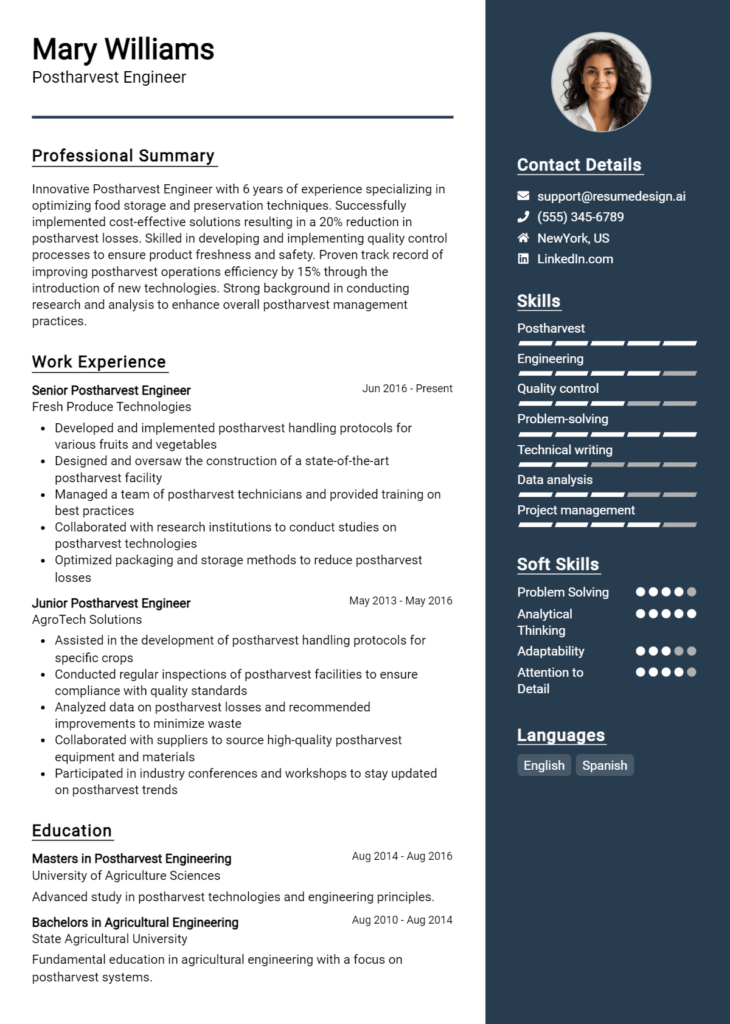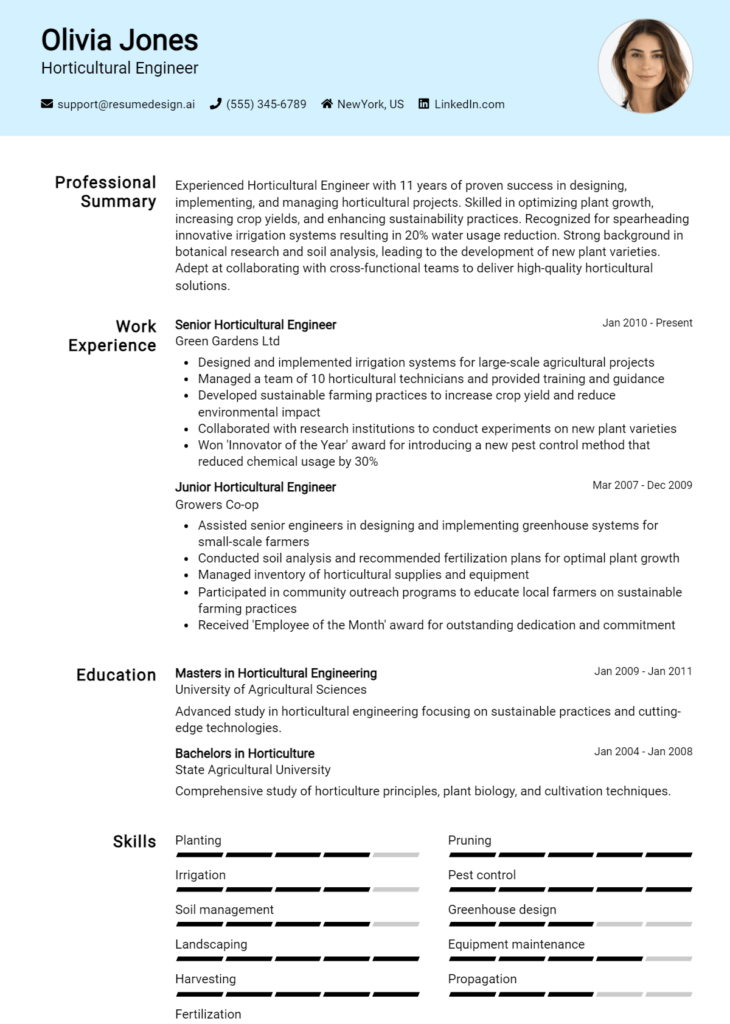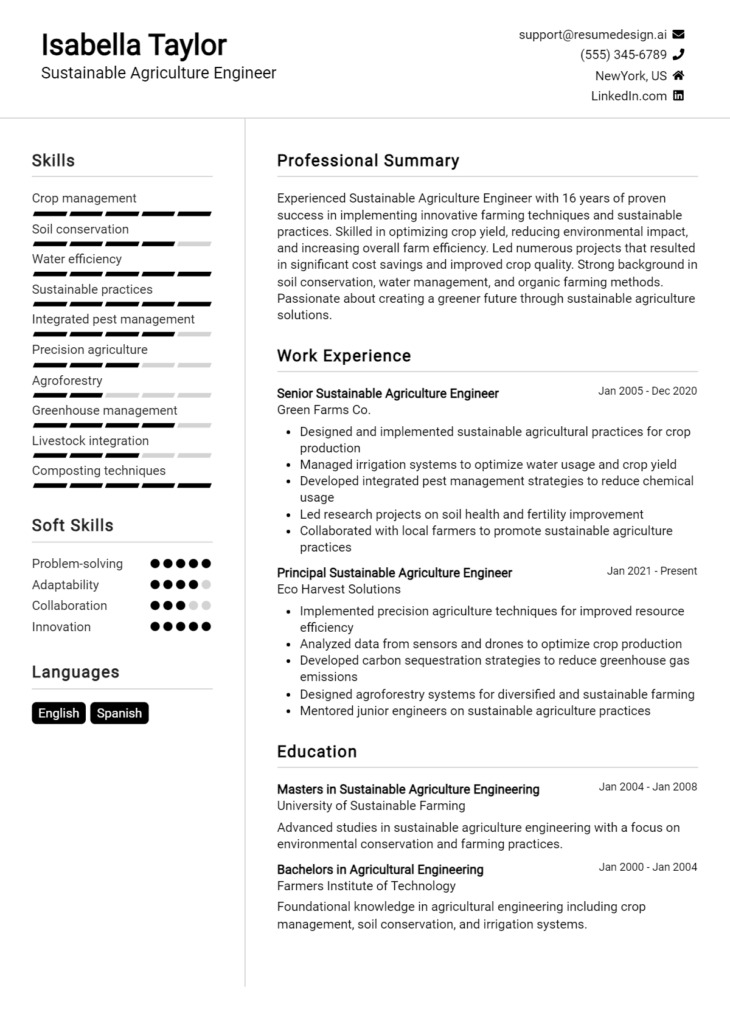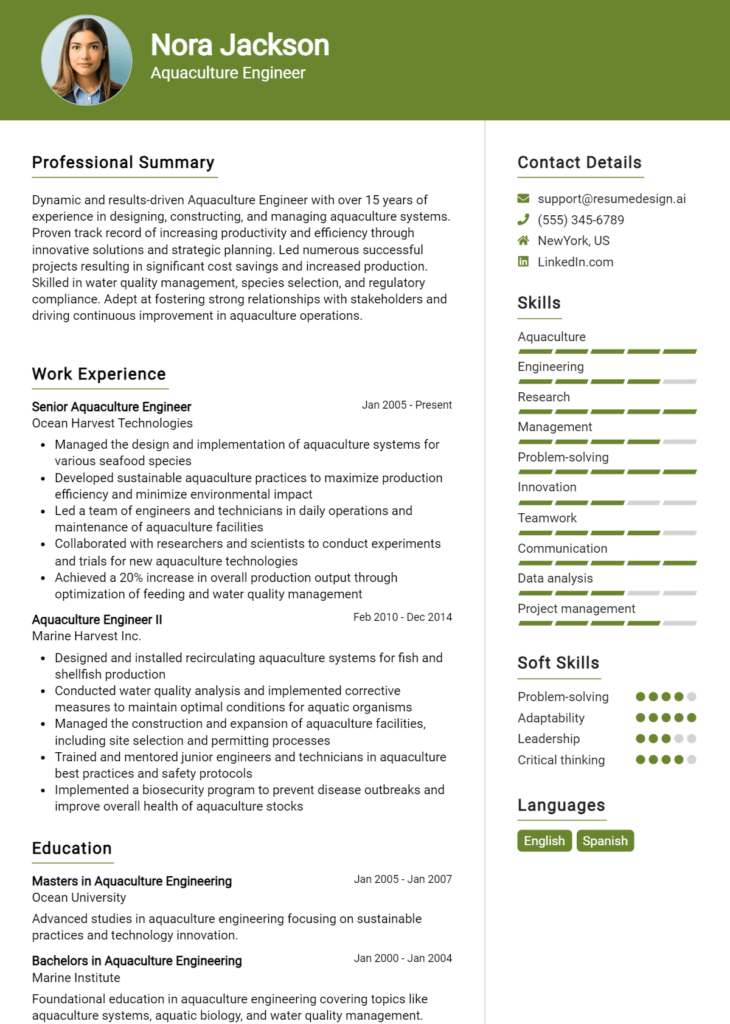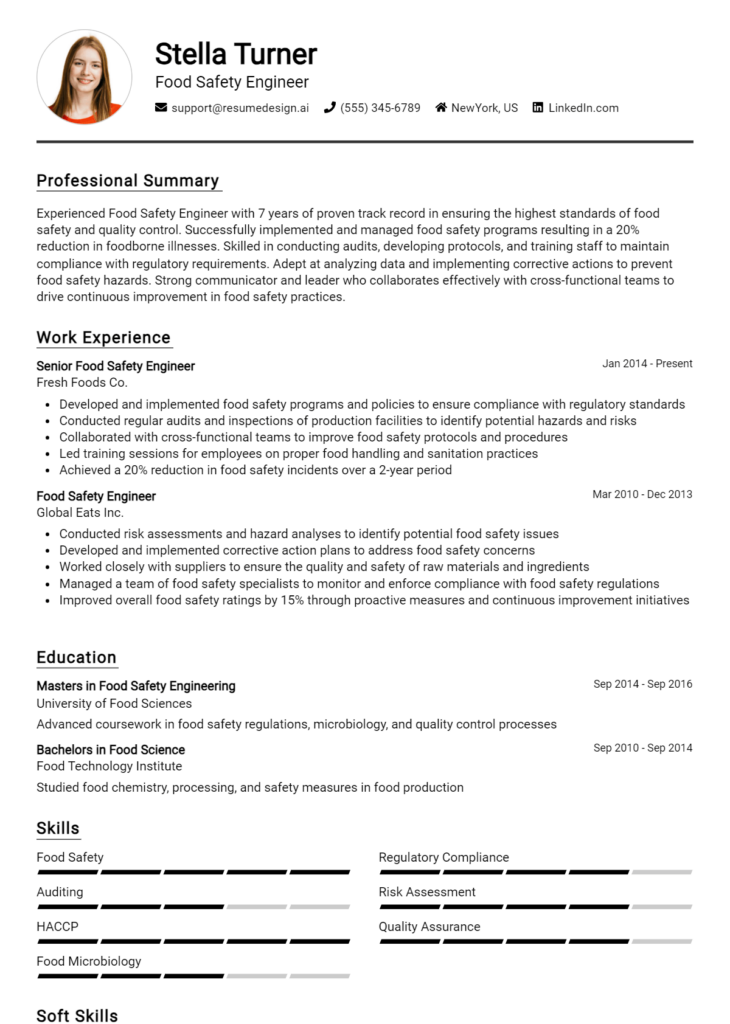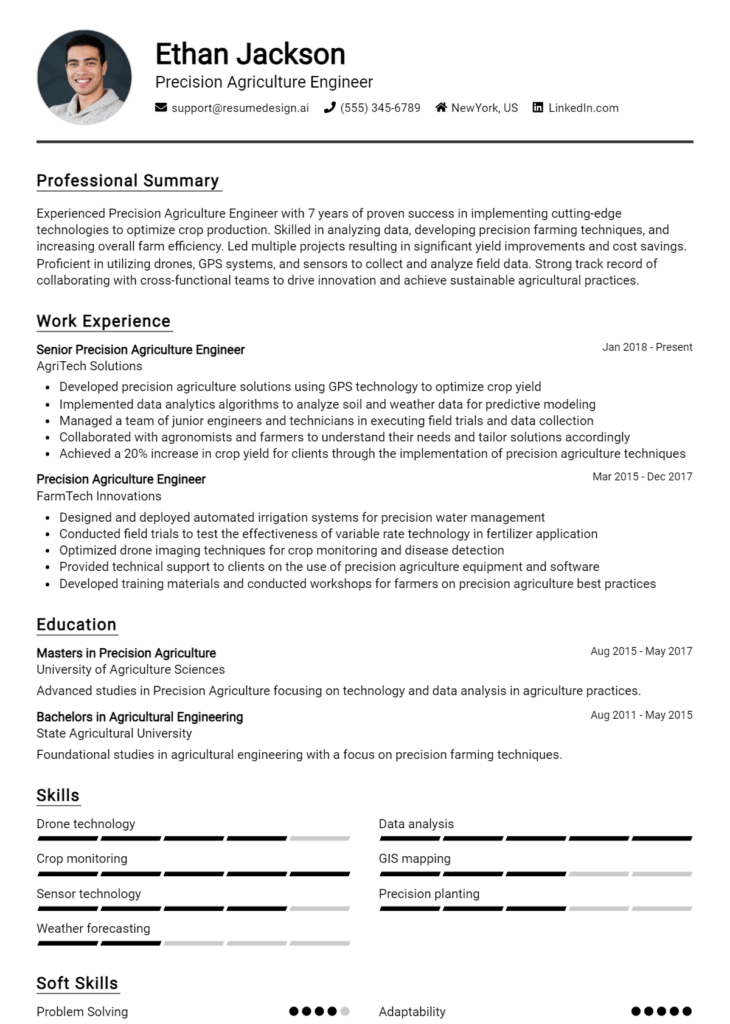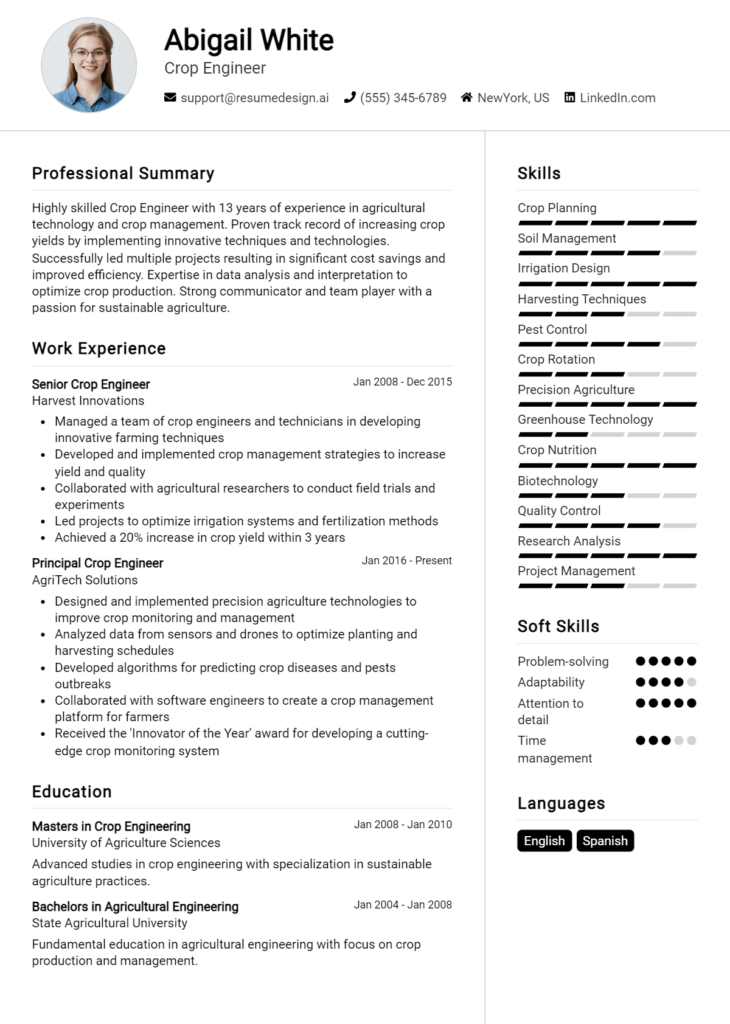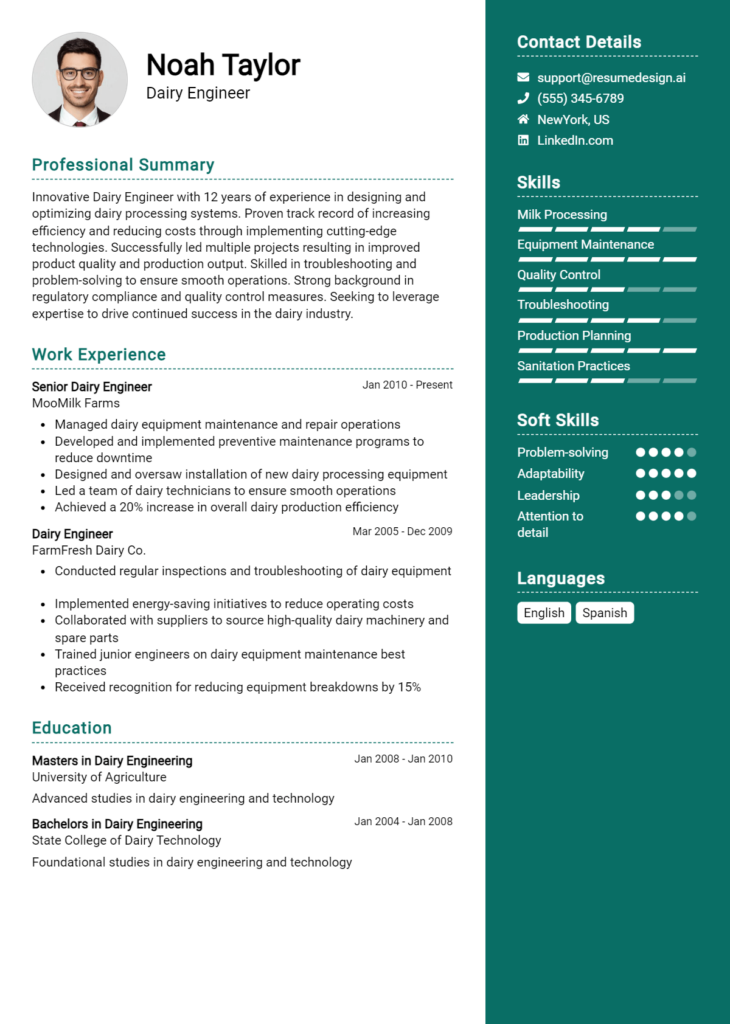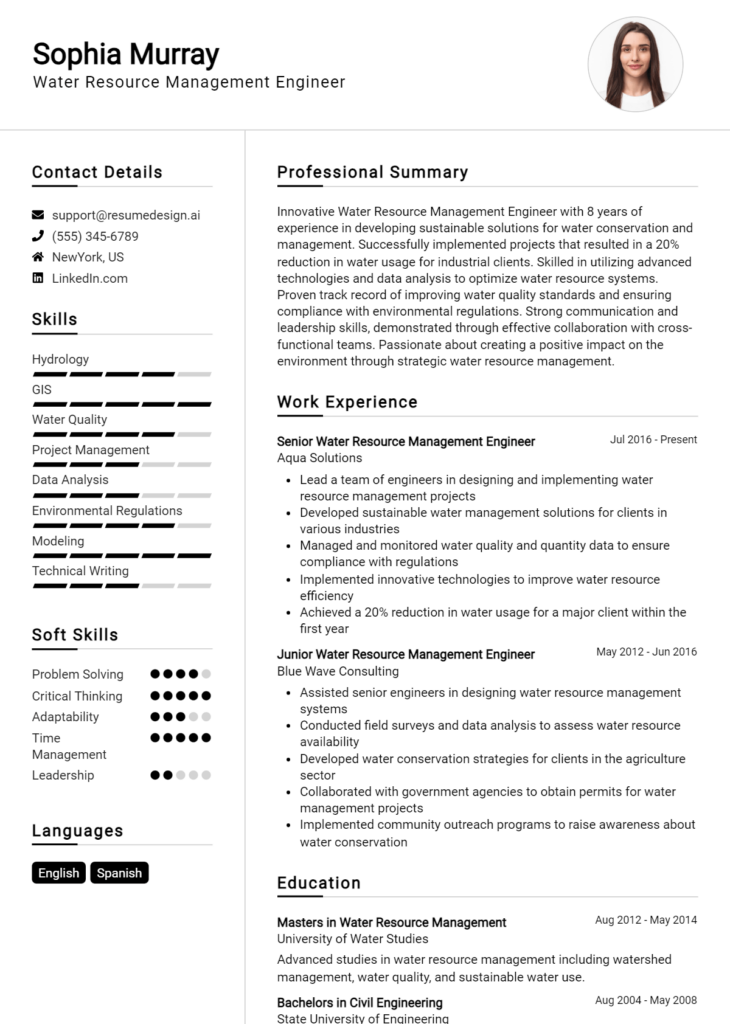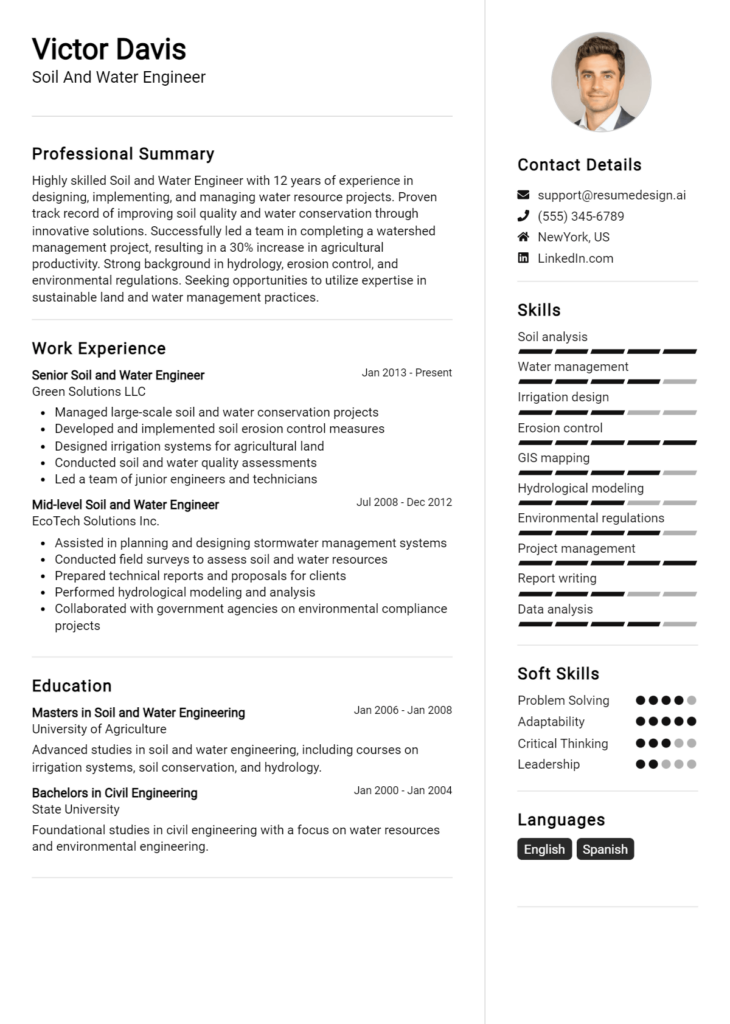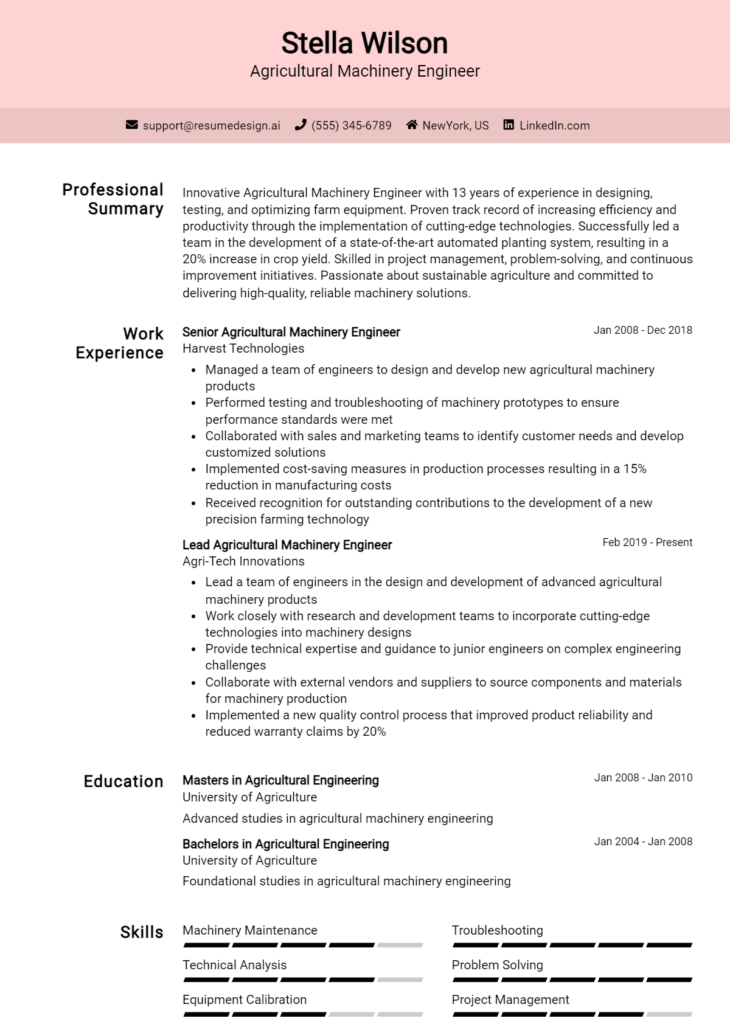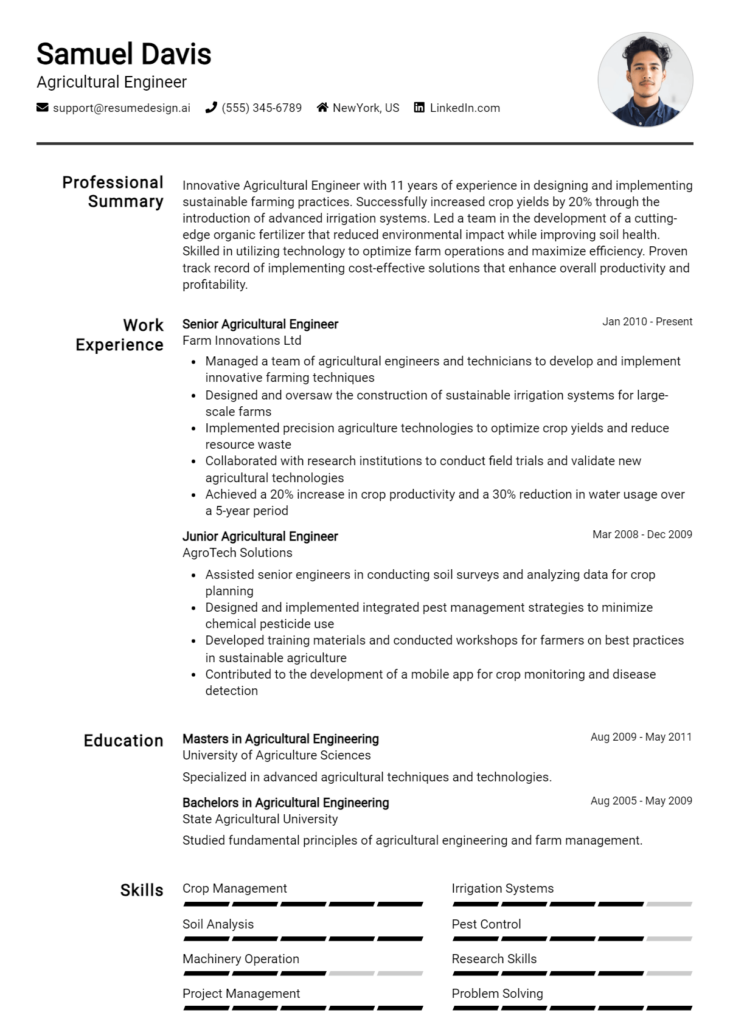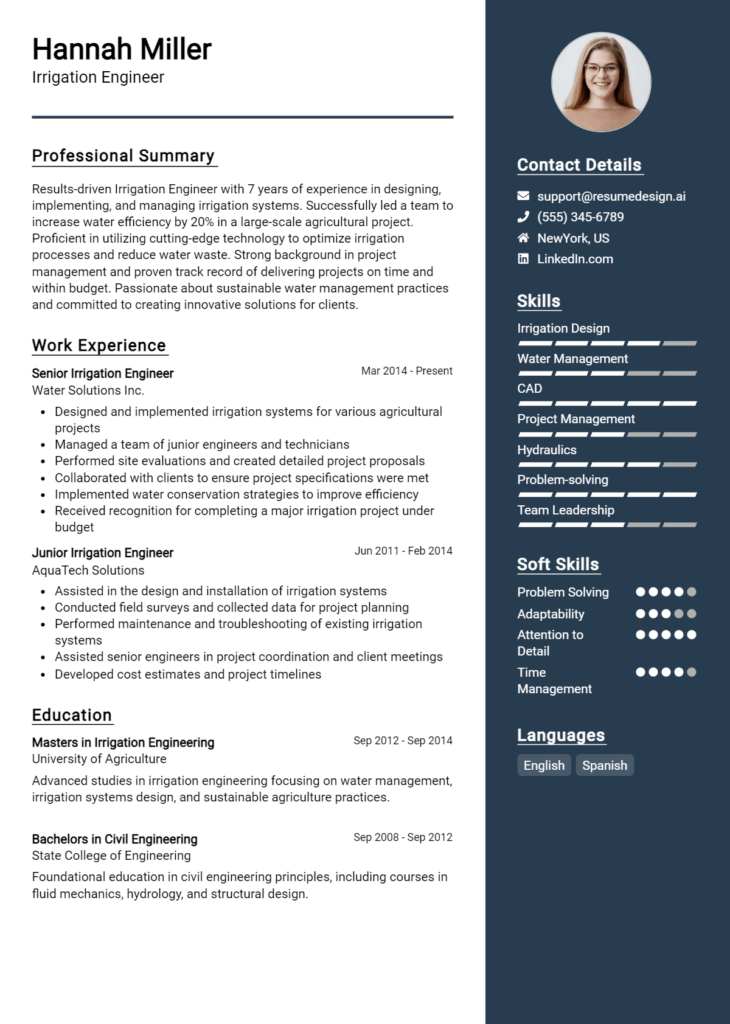Environmental Control Engineer Core Responsibilities
The role of an Environmental Control Engineer is pivotal in ensuring compliance with environmental regulations while optimizing operational efficiency. Key responsibilities include designing and implementing environmental systems, conducting impact assessments, and collaborating with cross-functional teams such as operations, safety, and compliance. Successful professionals possess strong technical skills, operational insight, and adept problem-solving abilities, all essential for achieving organizational sustainability goals. A well-structured resume can effectively highlight these qualifications, showcasing the candidate’s contributions to environmental stewardship.
Common Responsibilities Listed on Environmental Control Engineer Resume
- Design and optimize environmental control systems for air, water, and waste management.
- Conduct environmental impact assessments and audits.
- Ensure compliance with local, state, and federal environmental regulations.
- Collaborate with multidisciplinary teams to integrate environmental solutions.
- Analyze data to identify areas for improvement in environmental performance.
- Develop and implement sustainability initiatives and programs.
- Prepare technical reports and documentation for regulatory submissions.
- Provide training and support to staff on environmental practices.
- Monitor and evaluate the effectiveness of environmental control measures.
- Stay current with technological advancements and regulatory changes.
- Assist in emergency response planning and environmental risk assessments.
High-Level Resume Tips for Environmental Control Engineer Professionals
In the competitive field of environmental engineering, a well-crafted resume serves as a vital tool for professionals seeking to make a strong first impression on potential employers. Your resume is not just a list of your qualifications; it's a narrative that reflects your skills, achievements, and passion for environmental control. As the initial point of contact with hiring managers, it needs to convey your expertise in a compelling way that aligns with the specific demands of the role. This guide will provide practical and actionable resume tips tailored specifically for Environmental Control Engineer professionals, ensuring that your resume stands out in a crowded job market.
Top Resume Tips for Environmental Control Engineer Professionals
- Tailor your resume to the job description by using keywords and phrases that match the requirements of the position.
- Highlight relevant experience by focusing on projects and roles that specifically relate to environmental control and engineering.
- Quantify your achievements with specific metrics, such as the reduction of emissions by a certain percentage or cost savings achieved through your initiatives.
- Showcase industry-specific skills, such as knowledge of environmental regulations, sustainability practices, and technical software proficiency.
- Include certifications and licenses relevant to environmental control, such as LEED accreditation or Professional Engineer (PE) status.
- Utilize a clean and professional format that enhances readability and emphasizes key points.
- Incorporate a summary statement or objective that clearly expresses your career goals and what you bring to the table.
- List technical skills prominently, especially those that are in high demand within the environmental engineering sector.
- Maintain a consistent and professional tone throughout the document, avoiding jargon that may not be understood by hiring managers.
- Keep your resume concise, ideally one page, while still ensuring it captures all relevant information effectively.
By implementing these tips, you can significantly increase your chances of landing a job in the Environmental Control Engineer field. A focused and polished resume will not only highlight your qualifications but also demonstrate your commitment to contributing positively to environmental sustainability and engineering solutions.
Why Resume Headlines & Titles are Important for Environmental Control Engineer
In the competitive field of environmental engineering, a well-crafted resume headline or title is essential for capturing the attention of hiring managers. For an Environmental Control Engineer, this brief phrase serves as a powerful introduction that summarizes the candidate's key qualifications and expertise in a concise manner. A strong headline can set the tone for the entire resume, offering a snapshot of the candidate's skills and experiences relevant to the position. It should be tailored to the job being applied for, ensuring that it resonates with the employer’s needs and expectations. By presenting a compelling headline, candidates can effectively distinguish themselves from other applicants right from the start.
Best Practices for Crafting Resume Headlines for Environmental Control Engineer
- Keep it concise: Aim for a one-line summary that captures your essence.
- Be role-specific: Use terminology and keywords relevant to environmental control engineering.
- Highlight key strengths: Focus on your most impressive skills or accomplishments.
- Use action-oriented language: Start with strong verbs to convey dynamism and initiative.
- Tailor for the job: Customize each headline to align with the specific position you are applying for.
- Include quantifiable achievements: Whenever possible, use numbers to demonstrate success.
- Avoid jargon: While industry-specific terms can be beneficial, ensure they are widely understood.
- Stay professional: Maintain a formal tone that reflects the seriousness of the engineering field.
Example Resume Headlines for Environmental Control Engineer
Strong Resume Headlines
Dedicated Environmental Control Engineer with 10+ Years in Sustainable Solutions
Results-Driven Engineer Specializing in Air Quality Management and Compliance
Innovative Environmental Control Expert with Proven Track Record in Waste Management
Skilled Environmental Engineer Focused on Energy Efficiency and Regulatory Compliance
Weak Resume Headlines
Engineer Looking for Job
Environmental Control Engineer with Experience
Professional in Engineering
The strong headlines are effective because they immediately communicate specific expertise and achievements, thus arousing interest from hiring managers. They highlight relevant experience and skills in a way that aligns with the job description, making it clear why the candidate is a suitable fit. On the other hand, the weak headlines lack specificity and do not convey any significant qualifications or accomplishments. They fail to differentiate the candidate from others, leaving a vague impression that does not engage potential employers.
Writing an Exceptional Environmental Control Engineer Resume Summary
In the competitive field of environmental engineering, a well-crafted resume summary is crucial for Environmental Control Engineers seeking to make a strong first impression. This brief yet impactful section serves as an elevator pitch, quickly capturing the attention of hiring managers by highlighting key skills, relevant experience, and notable accomplishments. A strong summary not only showcases the candidate's technical expertise but also aligns their qualifications with the specific job they are applying for, making it easier for hiring managers to see their potential fit within the organization. Thus, a concise and tailored summary can be the deciding factor in securing an interview.
Best Practices for Writing a Environmental Control Engineer Resume Summary
- Quantify achievements: Use specific numbers to showcase the impact of your work.
- Focus on relevant skills: Highlight technical competencies and soft skills that align with the job description.
- Tailor the summary: Customize your summary for each application to match the job requirements.
- Be concise: Aim for 2-4 sentences that deliver a powerful message without unnecessary detail.
- Use action verbs: Start sentences with strong action verbs to convey confidence and proactiveness.
- Highlight certifications: Mention any relevant certifications or licenses that enhance your qualifications.
- Showcase problem-solving abilities: Include examples of how you have addressed environmental challenges.
- Maintain a professional tone: Ensure that the language used is formal and industry-appropriate.
Example Environmental Control Engineer Resume Summaries
Strong Resume Summaries
Results-driven Environmental Control Engineer with over 8 years of experience in designing and implementing innovative environmental solutions, resulting in a 30% reduction in emissions for major industrial clients. Proficient in regulatory compliance and sustainability practices, with a proven track record of leading projects that saved $500,000 in operational costs.
Dedicated Environmental Control Engineer skilled in air quality management and waste reduction techniques. Successfully developed and executed a waste management program that decreased landfill contributions by 40% in one year, while ensuring compliance with local and federal regulations.
Experienced Environmental Control Engineer with a background in environmental impact assessments and mitigation strategies. Recognized for enhancing water quality monitoring systems, leading to a 25% improvement in compliance rates across multiple facilities.
Weak Resume Summaries
Environmental Control Engineer with experience in various projects. Looking for a position to utilize my skills.
Motivated engineer interested in environmental issues and eager to contribute to a team. I have a degree and some experience, but I am open to new opportunities.
The examples of strong resume summaries are effective because they provide specific metrics and accomplishments that demonstrate the candidate's impact and expertise in the field. They tailor the content to the requirements of the Environmental Control Engineer role, showcasing relevant skills and experiences. Conversely, the weak resume summaries lack detail and specificity, making it difficult for hiring managers to assess the candidates' qualifications or envision their potential contributions to the organization. A vague or generic summary fails to capture attention and does not effectively communicate the candidate's value proposition.
Work Experience Section for Environmental Control Engineer Resume
The work experience section of an Environmental Control Engineer resume is critical as it serves as a testament to the candidate's technical skills and capabilities in managing teams to deliver high-quality products. This section not only highlights the individual's hands-on experience but also illustrates their ability to navigate the complexities of environmental regulations and control systems. By quantifying achievements and aligning their experience with industry standards, candidates can effectively demonstrate their value to potential employers, showcasing how their contributions have positively impacted projects and teams.
Best Practices for Environmental Control Engineer Work Experience
- Use clear and concise language to describe your roles and responsibilities.
- Quantify your achievements with specific metrics, such as cost savings, efficiency improvements, or project timelines.
- Highlight technical skills relevant to environmental control, including software proficiency and regulatory knowledge.
- Include examples of successful team collaboration and leadership in project delivery.
- Tailor your experience to align with the job description and industry standards.
- Demonstrate continuous learning through certifications or additional training.
- Focus on outcomes and the impact of your work on the organization and the environment.
- Showcase any experience with cross-departmental initiatives or stakeholder engagement.
Example Work Experiences for Environmental Control Engineer
Strong Experiences
- Led a team of 5 engineers in the successful implementation of a new air quality management system, resulting in a 30% reduction in emissions and a $200,000 annual cost savings.
- Developed and executed a waste reduction program that decreased hazardous waste by 25%, ensuring compliance with state regulations and improving facility sustainability.
- Collaborated with cross-functional teams to design and launch a water treatment project that improved efficiency by 40%, enhancing the facility’s operational capabilities.
Weak Experiences
- Worked on various environmental projects.
- Responsible for managing team tasks.
- Assisted in improving project outcomes.
The examples listed as strong experiences are considered effective because they provide specific, quantifiable results that demonstrate the candidate's technical expertise and leadership abilities. They illustrate how the candidate's contributions had a measurable impact on the organization and the environment. In contrast, the weak experiences lack clarity and detail, failing to convey any significant accomplishments or the true scope of the candidate's roles. This lack of specificity diminishes the overall effectiveness of the work experience section and does not engage potential employers.
Education and Certifications Section for Environmental Control Engineer Resume
The education and certifications section of an Environmental Control Engineer resume is crucial for showcasing a candidate's academic achievements and commitment to professional growth. This section not only highlights the foundational knowledge acquired through formal education but also emphasizes industry-relevant certifications and ongoing learning initiatives. By including specific coursework, relevant certifications, and specialized training, candidates can significantly enhance their credibility and demonstrate alignment with the requirements of the job role, thereby making a compelling case to potential employers.
Best Practices for Environmental Control Engineer Education and Certifications
- Focus on relevant degrees such as Environmental Engineering, Civil Engineering, or related fields.
- Include industry-recognized certifications like LEED, CEM, or Certified Environmental Professional.
- List relevant coursework that directly pertains to environmental control systems and regulations.
- Highlight any specialized training or workshops attended in the field of environmental control.
- Use clear and concise language to describe educational achievements and certifications.
- Prioritize more recent qualifications over outdated ones to reflect current knowledge and practices.
- Tailor the section to align with the specific job requirements mentioned in the job description.
- Consider including GPA or honors if they are impressive and relevant to the position.
Example Education and Certifications for Environmental Control Engineer
Strong Examples
- B.S. in Environmental Engineering, University of California, 2018
- LEED Accredited Professional (LEED AP), 2021
- Certified Energy Manager (CEM), Association of Energy Engineers, 2020
- Coursework in Air Quality Management and Water Resource Engineering
Weak Examples
- B.A. in History, State University, 2015
- Certification in Basic First Aid, 2019
- Online course in Social Media Marketing, 2022
- High School Diploma, 2012
The examples provided illustrate a clear distinction between strong and weak qualifications. Strong examples feature educational backgrounds and certifications that are directly relevant to the Environmental Control Engineer position, showcasing the candidate's expertise and alignment with industry standards. In contrast, weak examples reflect irrelevant or outdated educational qualifications and certifications, which do not contribute to the candidate's credibility in the environmental engineering field and may detract from their qualifications overall.
Top Skills & Keywords for Environmental Control Engineer Resume
In the competitive field of environmental engineering, having a well-crafted resume is crucial for standing out to potential employers. A strong resume for an Environmental Control Engineer must showcase not only the technical expertise necessary for the role but also the interpersonal skills that contribute to effective teamwork and project management. Skills play a pivotal role in conveying your qualifications and understanding of the environmental industry. Highlighting both hard and soft skills can demonstrate your ability to navigate complex environmental challenges while effectively collaborating with stakeholders. By carefully selecting and presenting your skills, you can enhance your chances of landing your desired position.
Top Hard & Soft Skills for Environmental Control Engineer
Soft Skills
- Problem-solving
- Effective communication
- Team collaboration
- Critical thinking
- Time management
- Adaptability
- Leadership
- Attention to detail
- Conflict resolution
- Project management
Hard Skills
- Environmental regulations knowledge
- Air quality control systems
- Water treatment processes
- Hazardous waste management
- Data analysis and modeling
- Geographic Information Systems (GIS)
- Environmental impact assessments
- Sustainable design principles
- Computer-aided design (CAD)
- Environmental monitoring techniques
By emphasizing these skills in your resume, you can effectively showcase your qualifications and make a strong impression on prospective employers. Additionally, it's essential to support these skills with relevant work experience to demonstrate your practical application of both soft and hard skills in real-world scenarios.
Stand Out with a Winning Environmental Control Engineer Cover Letter
I am writing to express my interest in the Environmental Control Engineer position at [Company Name], as advertised on [Where You Found the Job Posting]. With a solid background in environmental engineering and a passion for sustainable development, I am excited about the opportunity to contribute my expertise in designing and implementing effective environmental control systems that align with your organization’s commitment to sustainability and innovation.
In my previous role at [Previous Company Name], I successfully led a project aimed at reducing emissions from industrial processes, which involved comprehensive analyses of existing systems and the development of new technologies that significantly improved air quality. My experience in conducting environmental impact assessments and my proficiency in regulatory compliance ensured that projects met local and federal standards. I am well-versed in utilizing advanced modeling software to simulate environmental conditions, allowing for data-driven decision-making that optimizes performance and minimizes ecological footprints.
I am particularly drawn to [Company Name] because of your commitment to [specific project, value, or initiative related to the company]. I am eager to bring my skills in project management, stakeholder engagement, and innovative problem-solving to your team. I believe that my collaborative approach and ability to work cross-functionally with diverse teams will be an asset in driving projects from concept to completion, ensuring that they meet both technical and environmental goals.
Thank you for considering my application. I am excited about the possibility of contributing to [Company Name] and would welcome the opportunity to further discuss how my background, skills, and enthusiasms align with your needs. I look forward to the possibility of working together to create sustainable solutions and enhance the company’s environmental stewardship.
Common Mistakes to Avoid in a Environmental Control Engineer Resume
When crafting a resume for an Environmental Control Engineer position, it's crucial to present your qualifications, experiences, and skills effectively. Unfortunately, many candidates make common missteps that can undermine their chances of landing an interview. Avoiding these pitfalls can significantly enhance the clarity and impact of your resume, making it easier for employers to see your potential fit for their organization.
Lack of Specificity: Failing to provide detailed descriptions of past projects and responsibilities can leave hiring managers unclear about your actual contributions and expertise.
Ignoring Keywords: Many companies use Applicant Tracking Systems (ATS) to filter resumes. Not including relevant keywords from the job description can result in your resume being overlooked.
Overloading with Technical Jargon: While technical skills are important, using excessive jargon without explanation can alienate those who may not be familiar with specific terms, such as HR personnel.
Poor Formatting: A cluttered or inconsistent format can make your resume difficult to read. Ensure that your layout is clean, organized, and professional.
Vague Achievements: Instead of stating responsibilities, quantify your achievements. For example, mentioning specific improvements in energy efficiency or reductions in waste can provide measurable outcomes of your work.
Not Tailoring the Resume: Submitting a generic resume for every application can diminish your chances. Tailoring your resume to highlight the most relevant skills and experiences for each position shows genuine interest and effort.
Omitting Soft Skills: While technical skills are vital, soft skills such as teamwork, communication, and problem-solving are equally important in environmental control roles. Be sure to highlight these attributes.
Neglecting Professional Development: Not including certifications, licenses, or ongoing education in environmental engineering can make your resume less competitive. Show your commitment to staying updated in the field.
Conclusion
As an Environmental Control Engineer, your role is crucial in designing and implementing systems that manage environmental conditions, ensuring both efficiency and sustainability. Throughout this article, we explored the fundamental responsibilities of this position, including the design of HVAC systems, compliance with environmental regulations, and the use of innovative technology to optimize energy consumption.
We also highlighted the importance of strong analytical skills, problem-solving abilities, and effective communication, which are essential for collaborating with multidisciplinary teams and stakeholders. In addition, we discussed the growing emphasis on sustainability and how your expertise can significantly contribute to eco-friendly practices in various industries.
To stand out in this competitive field, it's essential to have a well-crafted resume that showcases your skills, experience, and achievements. We encourage you to review your Environmental Control Engineer resume today. Take advantage of valuable resources available to you, such as resume templates, which can help structure your information effectively. Explore our resume builder for a user-friendly way to create a polished document. Don't forget to check out resume examples for inspiration and learn how others have successfully presented their qualifications. Additionally, consider utilizing cover letter templates to complement your resume and make a strong first impression.
Take the next step in your career by refining your resume today!

